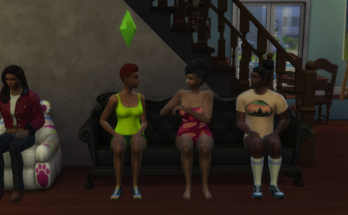Following closely on the heels of my last post on Jodi Dean and the possible affordances of writing and publishing some of our scholarly new media writing online, I’m happy to be able to look at Nick Mirzoeff’s “‘We are All Children of Algeria‘: Visuality and Countervisuality 1954-2011,” recently “published” by Duke University Press as an extension of his book The Right to Look. Built in the Alliance for Networking Visual Culture’s Scalar—”born-digital, open source, media-rich scholarly publishing that’s as easy as blogging”—the work sits in proximity to my own Learning from YouTube in that it was supported by many of the same institutions and collaborators (I did not write in Scalar, however, but rather in an earlier version of their authoring tool. Many of my cumbersome requirements for linking text and media became routinized with Scalar).
While Mirzoeff provocatively begins by suggesting that “whether or not you work ‘on’ or about Algeria, there is an ‘Algeria’ in your work,” I find that there is another shared metaphor, nay structure, that fuels possible intellectual connection: form. For, as seems definitive for many of our contemporary efforts in transformative scholarly communication, he writes as much about his writing and its structures, shapes, and tools as he does about his proper subject: “how can we “see” Algeria, its decolonization and revolution?”
He suggests that “this format, allowing as it does for a set of intersecting and interfacing threads to compose the whole, is better suited to reclaiming and exploring these histories than the linear text-based narrative.” And then he calls this kind of writing and reading a “march” because he understands it as “militant research.” This designation seems both apt and critical to me for many reasons. Mirzoeff notes how affect is set into play differently within digital writing practices, so that qualities of an experience (something that many of us have pushed writerly metaphor to reach towards [and one reason I also author in video]) become more readily a part of the expressive reach of the form, as does then, also, an altered relation (of trust) between writer, reader, and text. Kathleen Fitzpatrick has recently blogged that digital scholarship allows a “shift … from an implicit, buried acknowledgment that scholarship’s serialization practices are based on multi-directional exchanges to an explicit emphasis on such exchange.” Exchanging we are, and shifting, and sometimes even marching, if not exactly forward: “it’s not about getting to the end, this is not a video game. It’s about who you want to be, not as a consumer, but as a citizen: for we are all citizens of the International.”
Mirzoeff’s decidedly, abashedly, romantically political aims are what might be best-suited to the form. His militancy. And here’s the rub I often mention when touring my own overtly political digital media pub. It’s full professors who currently have enough institutional safeguarding to make these dangerous formal deployments even as its our junior colleagues who should be leading the vanguard. He writes: “In the end, the disciplinary form—in all senses—of the monograph finds itself yielding to a form that has no real name: Intergraph? multigraph? videograph? The videograph (say) depends on a relation of trust.” But these are dangerous times, as we know, given the paucity of jobs and tenure, not to mention the real punitive ramifications for some politicized scholarship in our ever more timid or corporate intellectual institutions.
Feminist, queer, and AIDS activist mediamakers have long theorized “trust” as a part of our authoring apparatus, and our more committed, ideological, intellectual and political digital connections are what I have been holding against some Internet theorists‘ fear of fickle or superficial “friends” and warranted subjectivity. Perhaps it is not so bold for those like Fitzpatrick, Mirzoeff, or myself, backed as we may be by powerful institutions and tenure (and Nick took the “easy” route by publishing a “real” book too…), to make and promote innovative formal work, however I do so with the trust that my comrades inside academia and out will join me here, in exchanges that demonstrate more radical ways not just to be professors, but as Nick suggests citizens.


